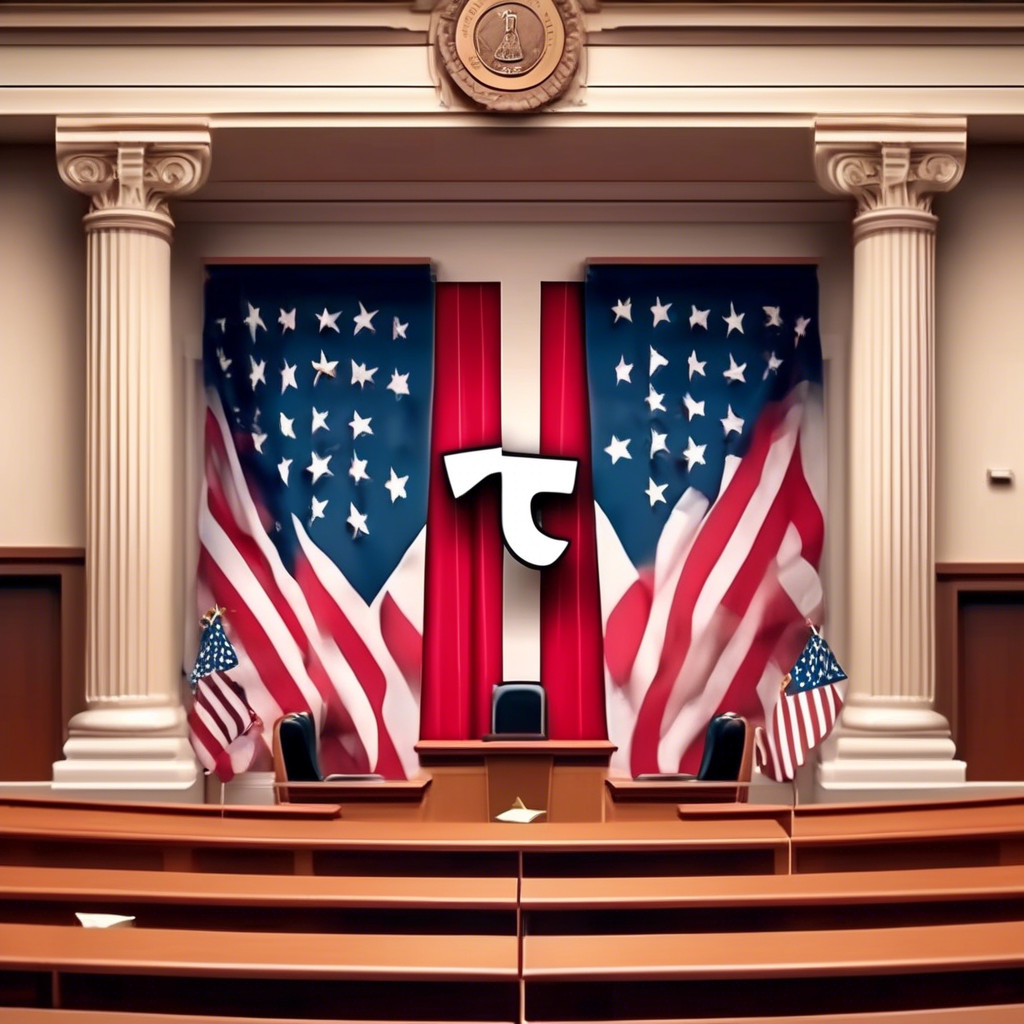TikTok and its parent company, ByteDance, have recently launched a legal battle against the U.S. government over the app ban, which has been a hot topic in the tech world. The ban, which was set to take effect on September 27, has been a major point of contention between the two parties, with TikTok arguing that the ban is unconstitutional and violates their rights. The legal battle has sparked a lot of debate and speculation about the future of the popular social media app, with many wondering what the outcome will be and how it will affect the millions of users in the U.S.
In a recent development that has captured the attention of the tech world, TikTok and its parent company, ByteDance, have initiated a legal dispute against the U.S. government over the ban on the popular social media app. The ban, which has been a source of controversy and concern, has led to a heated legal battle between the two parties, with TikTok asserting that the ban is unjust and infringes on their rights. This legal showdown has generated a great deal of interest and speculation about the future of the app and its impact on the millions of users in the U.S.
TikTok and ByteDance’s Lawsuit Against the Federal Government
Yesterday, TikTok and ByteDance filed a lawsuit against the federal government challenging the constitutionality of the Protecting Americans From Foreign Adversary Controlled Apps Act, known as PAFACA or just “The TikTok Ban Bill.” The bill requires ByteDance to sell TikTok’s U.S. operations by January 19, 2025, or face a ban of the app in the United States. Most of the arguments in TikTok and ByteDance’s complaint are things that have been reported before, but there are nine new or noteworthy things that suggest where this fight may be headed next. One of the key points in the complaint is the rejection of Project Texas by CFIUS in March 2023, and the passage of PAFACA shows that Congress, too, thinks it’s not enough. The $2 billion figure is new, up from a claim by TikTok in early 2023 that the company would spend $1.5 billion on the initiative. Tech companies have for years sought refuge from regulation by portraying themselves as engines of the U.S. economy, and part of TikTok/ByteDance’s strategy here is to project confidence and show that things are business as usual.
Ghosted By The Government: When The Deal Really Went South
TikTok/ByteDance paint a dramatic picture of CFIUS ghosting them at the negotiating table between August 2022 and March 2023, when CFIUS said that ByteDance would have to sell TikTok or face a ban in the U.S. A lot happened in the months when CFIUS wasn’t talking to TikTok/ByteDance. It was during those months that Forbes revealed a plan by ByteDance’s Internal Audit and Risk Control department to surveil reporters in an effort to ferret out their sources, and ByteDance conducted an investigation showing that its employees had in fact surveilled journalists. ByteDance fired four employees as a result of what it subsequently referred to as “the misguided effort,” including its chief internal auditor and the Beijing-based executive that he reported to.
ByteDance’s Founder Lives In Singapore, Not China
The companies say that ByteDance founder Zhang Yiming, a Chinese citizen, is officially living in Singapore. Yiming, who prefers to go by his given name, has lived part-time on the island nation since 2022, where he rode out much of China’s most draconian COVID restrictions, but this is the first time the companies have described him as legally domiciled in a country other than China.
TikTok and ByteDance Finally Admit How Tightly They’re Wound Together
TikTok/ByteDance are now leaning into a thread that we’ve reported on for years: that the TikTok app is inextricably tied to the rest of ByteDance’s systems, in a way that makes separating them effectively impossible. “Moving all TikTok source code development from ByteDance to a new TikTok owner would be impossible as a technological matter,” the companies argue, before launching into an explanation about TikTok’s “millions of lines of software code that have been painstakingly developed by thousands of engineers over multiple years.”
TikTok Ban in [English]
| Country | Status | Reason |
|---|---|---|
| India | Banned | Security concerns |
| United States | Under review | Privacy and national security concerns |
| Pakistan | Banned | Morality and decency concerns |
RESULT
The TikTok ban has been a topic of debate in various countries due to concerns related to security, privacy, national security, and morality. While some countries have banned TikTok outright, others are reviewing the app’s operations to address these concerns. The ban has sparked discussions about the impact of social media platforms on society and the need for regulations to ensure user safety and data privacy.

Leave a Reply